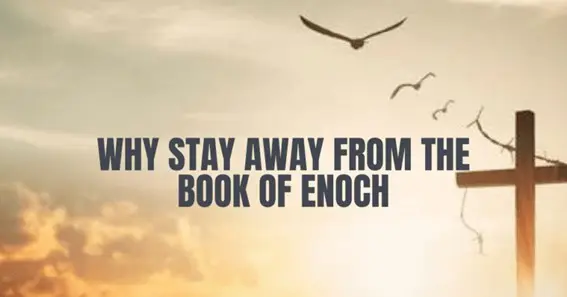The Book of Enoch, an ancient Jewish text attributed to Enoch, the great-grandfather of Noah, has intrigued scholars and religious communities for centuries. Despite its historical significance, many religious traditions advise caution or recommend staying away from the Book of Enoch. This article explores the reasons behind this caution, focusing on authorship, canonical status, theological content, and historical context.
Authorship and Authenticity
One primary reason for caution is the uncertainty surrounding the authorship of the Book of Enoch. Scholars widely agree that it was written by multiple authors over several centuries, long after the biblical Enoch would have lived. This raises questions about the authenticity and credibility of the text.
Canonical Status
The Book of Enoch is not included in the canonical scriptures of most major religious traditions, including Judaism and mainstream Christianity. Its exclusion from the biblical canon suggests that early religious leaders did not consider it divinely inspired or authoritative.
Theological Content
The theological content of the Book of Enoch contains elements that differ from canonical scriptures. For instance, it provides detailed accounts of fallen angels and their interactions with humans, leading to the birth of the Nephilim—a narrative that expands upon the brief mention in Genesis 6:1-4. These elaborations are not found in the canonical texts and may lead to theological confusion.
Historical Context
The Book of Enoch was composed between the 3rd century BCE and the 1st century CE, a period marked by diverse religious writings. Its content reflects the apocalyptic and mystical traditions of that era, which may not align with the theological frameworks of established religious traditions.
Conclusion
While the Book of Enoch offers intriguing insights into ancient Jewish thought and apocalyptic literature, its uncertain authorship, non-canonical status, divergent theological content, and specific historical context have led many religious scholars and traditions to advise caution. Understanding these factors is essential for those exploring this ancient text.
FAQ
- Why is the Book of Enoch not included in the Bible?
The Book of Enoch is not included in the Bible because early religious leaders did not consider it divinely inspired or authoritative, leading to its exclusion from the canonical scriptures. - What are the main theological differences between the Book of Enoch and the Bible?
The Book of Enoch contains detailed accounts of fallen angels and the Nephilim, narratives that are only briefly mentioned in the Bible, leading to potential theological discrepancies. - Is it considered a sin to read the Book of Enoch?
Reading the Book of Enoch is not universally considered a sin, but many religious traditions advise caution due to its non-canonical status and divergent theological content. - What is the historical significance of the Book of Enoch?
The Book of Enoch provides valuable insights into ancient Jewish apocalyptic literature and the religious thoughts of the period between the 3rd century BCE and the 1st century CE. - Are there any Christian denominations that accept the Book of Enoch as scripture?
The Ethiopian Orthodox Church includes the Book of Enoch in its biblical canon, but most other Christian denominations do not consider it canonical.
Check out here for a more interesting article britney-manson-age










